Installation view of Virtue Village's solo exhibition "Vibe Buster" at PHD Group, Hong Kong, 2025. Courtesy the artists and PHD Group, Hong Kong. Photo by Felix SC Wong.
VIRTUE VILLAGE: VIBE BUSTER
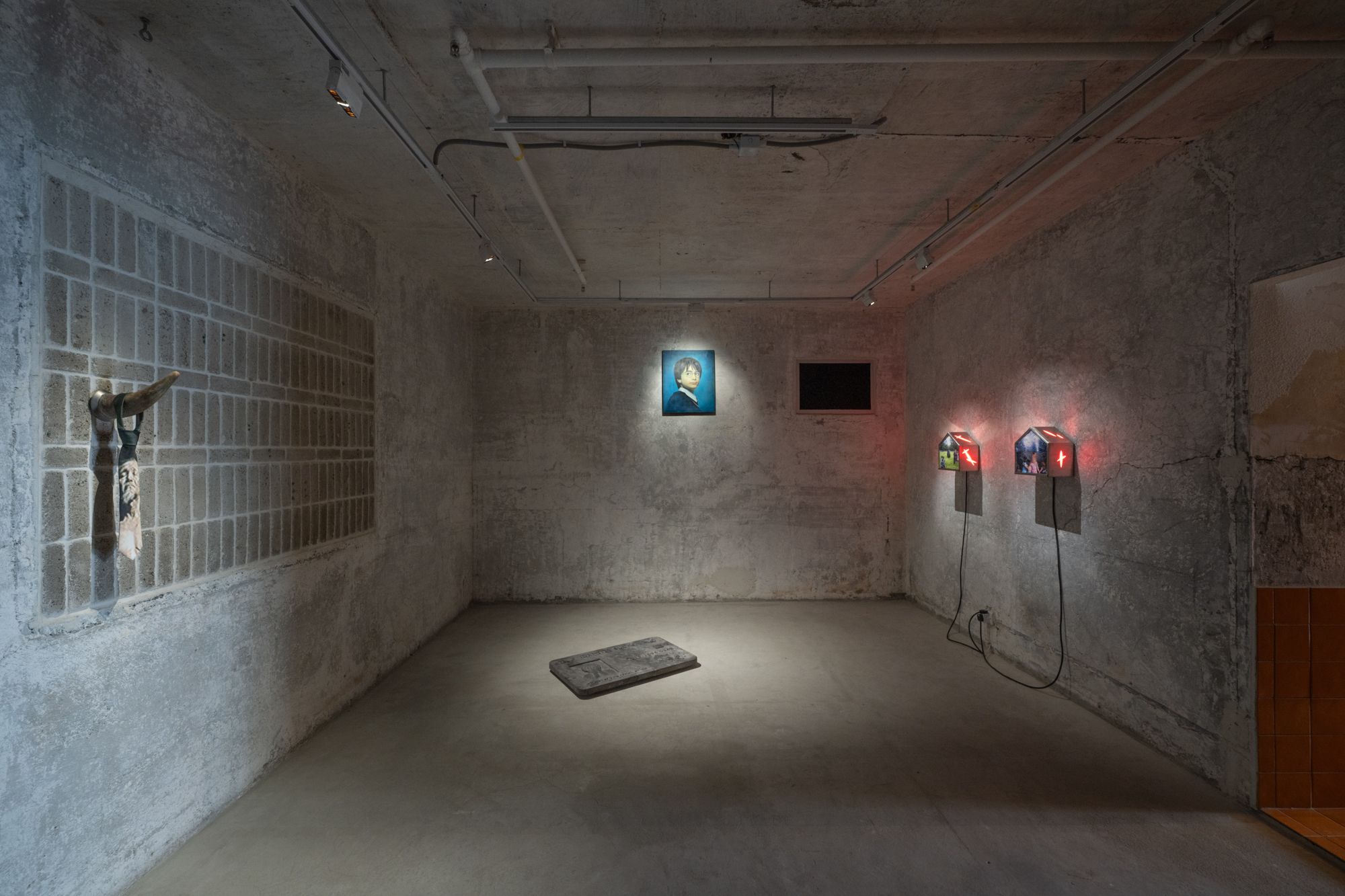
Installation view of Virtue Village's solo exhibition "Vibe Buster" at PHD Group, Hong Kong, 2025. Courtesy the artists and PHD Group, Hong Kong. Photo by Felix SC Wong.
What is inherited; what is our own? Three years after their debut solo show “Village Porn,” Hong Kong-based artist duo Virtue Village presents “Vibe Buster,” an experiential exploration of hauntology, queer theory, and the personal archive. Engaging not with literal ghosts but the intimate, spectral lingering of taught narratives, Virtue Village parse their new body of work across three central themes: the death of identity, the death of the father, and the death of magic.
At the crux of the show is the theory of queer hauntology, an identity movement that challenges the inclusivity of the “born this way” narrative. Institutionalized through popular culture and political agenda, the slogan has been instrumental in the advancement of queer rights—yet its message contains a paradox, one that suggests queerness and identity is a fixed, and perhaps even inherited, state.
Challenging this concept is You’re a Wizard, Baby! (2025), an outsize identification card displayed on the floor as if dropped by a recent visitor. Referencing a document that lists a person’s gender, residence, and birthday—all facts that make, according to governments, a person legible or valid—this alternate ID card instead deconstructs or kills the notion of identity, featuring cryptic symbols and messages that refute rigid recognition or identification. Yet an enigmatic quote by a Tibetan Buddhist monk inscribed on its surface—“whatever you resist, exists”—provides yet another perspective: the more we struggle against systems of control, the more we are in turn controlled by them.
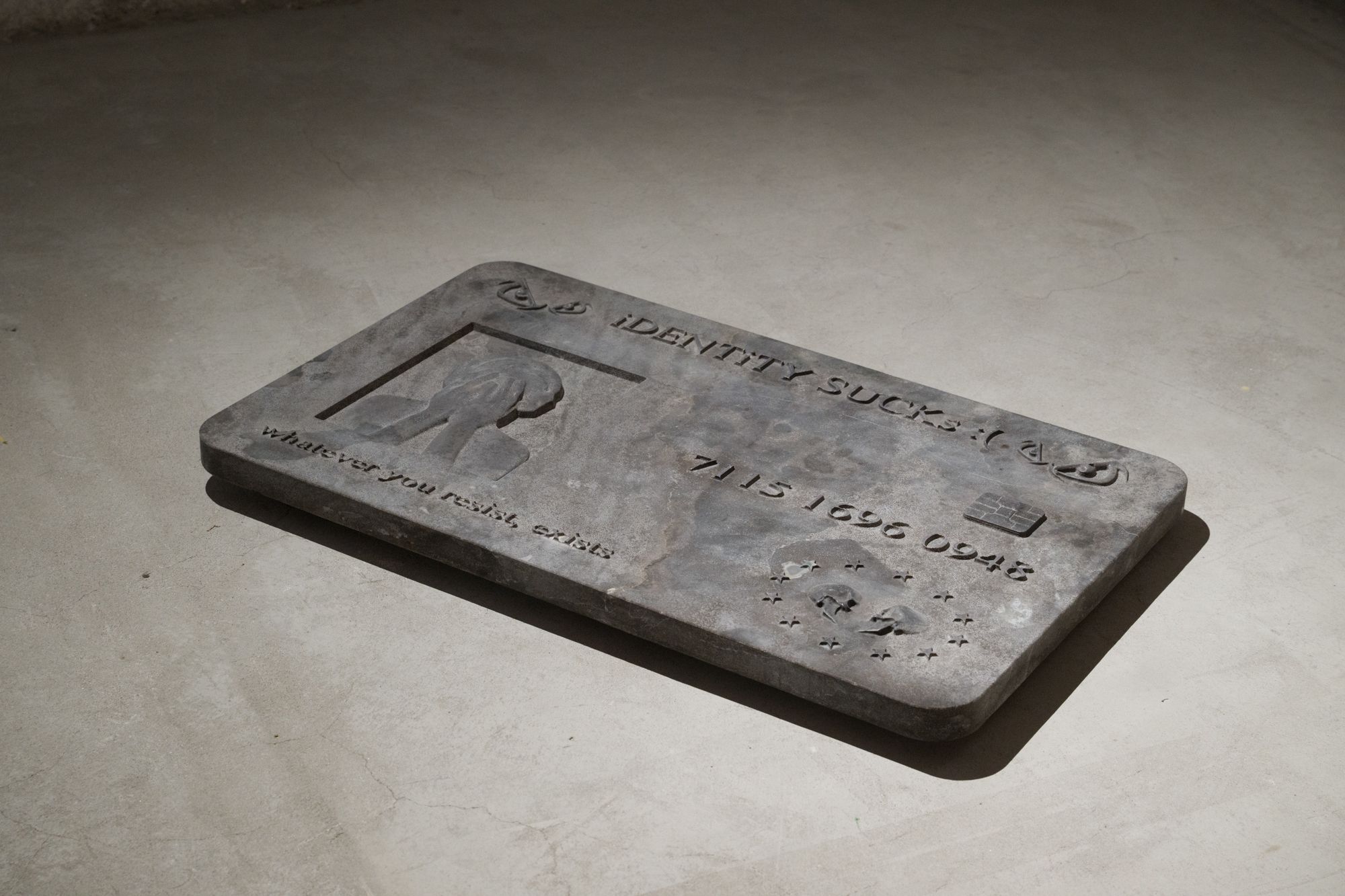
Virtue Village
You’re a Wizard, Baby!
2025
Bluestone
55 x 89 x 5 cm
Courtesy the artists and PHD Group, Hong Kong. Photo by Felix SC Wong.
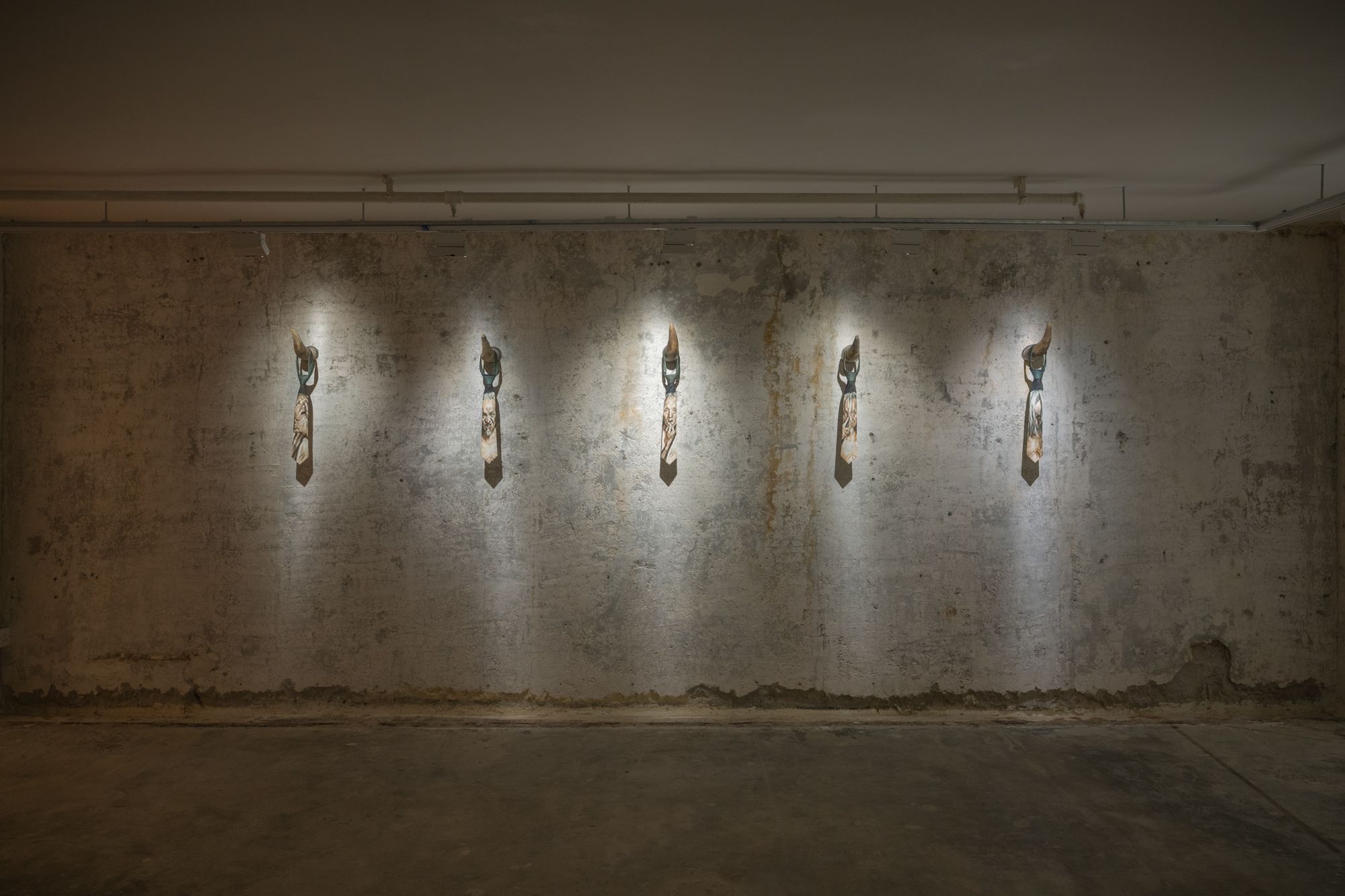
Installation view of "Homme Fatale" series (2025) at Virtue Village's solo exhibition "Vibe Buster," PHD Group, Hong Kong. Courtesy the artists and PHD Group, Hong Kong. Photo by Felix SC Wong.
These slippery tensions continue with a series of ties, “Homme Fatale” (2025). Referencing Joseph Chen’s patrilineal family history in manufacturing silk ties, the accessories feature portraits of Wah, a performance artist and recurring collaborator in Virtue Village’s works. Acting as a conduit for the father figure, Wah’s explicit range of expressions—from tender to enraged—reveal a fragmented performance of masculinity, referencing the felt absence of Chen’s father and grandfather in his childhood, and the tensions of heteronormative conformity.
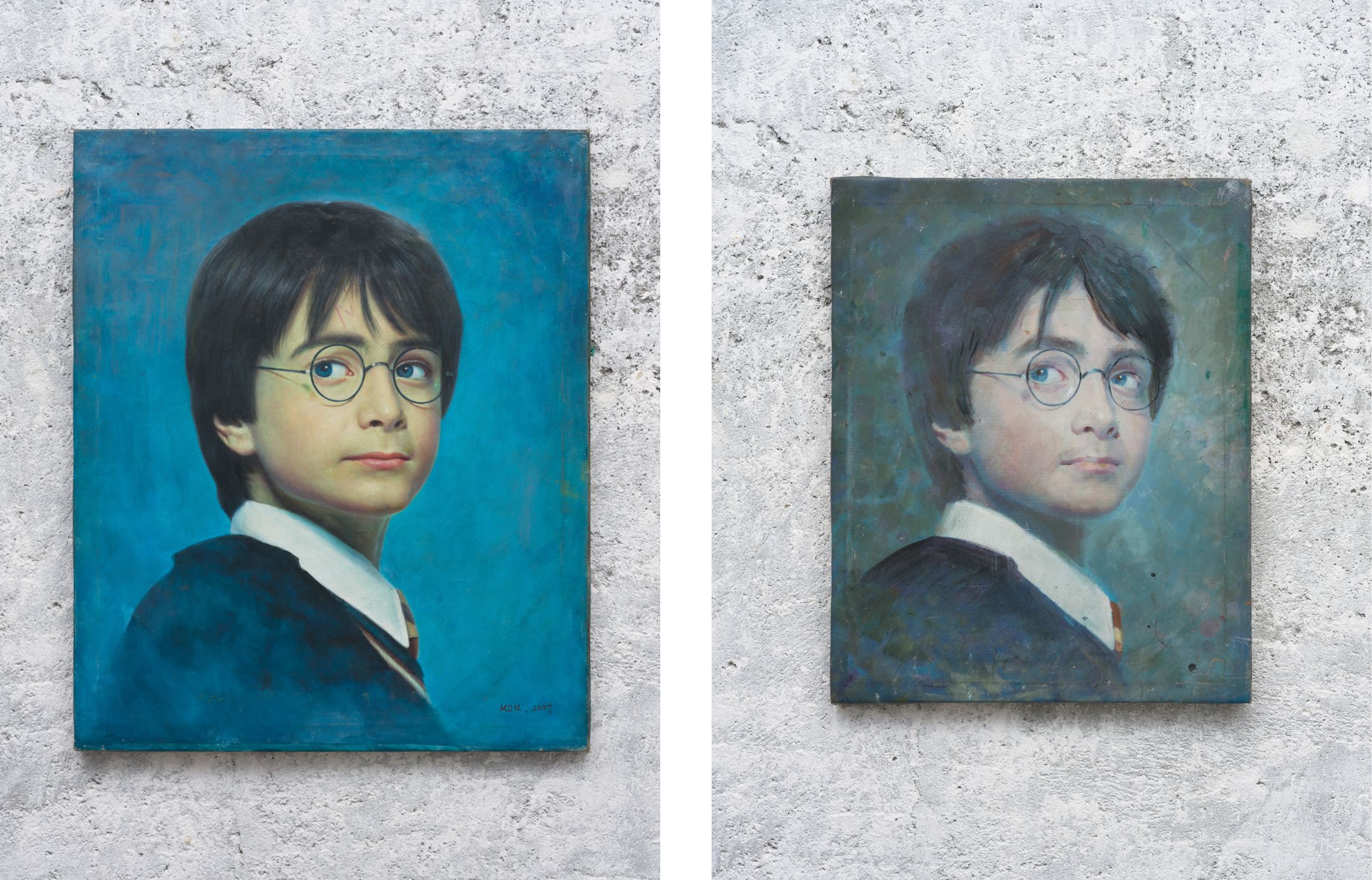
Virtue Village
Harry Potter by Elon Chen (2003)
2025
Acrylic on canvas
61 x 51 cm
Courtesy the artists and PHD Group, Hong Kong. Photo by Felix SC Wong.
Virtue Village
Harry Potter by My Father (circa 2003)
2025
Acrylic on canvas
51 x 41 cm
Courtesy the artists and PHD Group, Hong Kong. Photo by Felix SC Wong.
If in the ties we find the traces of the absent father, elsewhere in the exhibition we find its inverse reflection: the innocent son. Two near-identical paintings of Harry Potter are shown. Both painted by Elon Chen, Joseph Chen’s late artist father, the first canvas showcases the fictional character circa the early 2000s, with a lambent glow indicating his poster boy status. In the second iteration, however, the painting takes on a darker, moodier pallor, with aged clouds of color hovering near Harry Potter’s face. These works are among dozens that Elon Chen methodically painted to hone his technique, yet in the context of J. K. Rowling’s transphobic tirades and the consequent reframing of the Harry Potter universe, they appear to comment on the failures of fantasy and the loss of innocence.
Virtue Village
Every Vibe Shift is in God’s Hands
2025
Single-channel video with color and sound
12 min 17 sec
Courtesy the artists and PHD Group, Hong Kong.
In examining belonging and agency, individuality and collective choice, uncanny paths of multiple destinies appear, complicated by another ghostly presence: artificial intelligence. Every Vibe Shift is in God’s Hands (2025) narrates the true story of Joshua Brown, who perished in one of the first cases of autopilot deaths. According to reports, Brown’s Tesla autopilot system failed to differentiate between the sky and the white facade of a giant truck, resulting in a fatal collision. Yet what occurred in the crucial seconds before the crash appears to be contentious. Could the fatality have been avoided had Brown simply looked out of the window, taking hold of the wheel? Or did Tesla’s founder, the notorious Elon Musk—who once said that people could sleep in his self-driving cars—mislead his buyers?
If we relinquish ideas of true autonomy, perhaps we are left only with an eerie sequence of coincidences and hauntings. Phantom trails follow us everywhere, confusing what we believe to be true, and what we have been told is truth. It has not escaped Virtue Village that Joseph’s father shares the same first name as Elon Musk, who recently deadnamed his transgender daughter, resurrecting her past ghosts. And although we know little about Joshua Brown and what led to the events of his death, we do know his movie choices. According to the surviving truck driver, a film was playing in the Tesla, and continued to play even after the passenger had died and the car had fully collided with the truck and a nearby telephone pole. That movie was Harry Potter.
For further information and media inquiries, please contact Neil Wong (neil@phdgroup.art). For sales inquiries, please contact Willem Molesworth (willem@phdgroup.art) or Ysabelle Cheung (ysabelle@phdgroup.art).
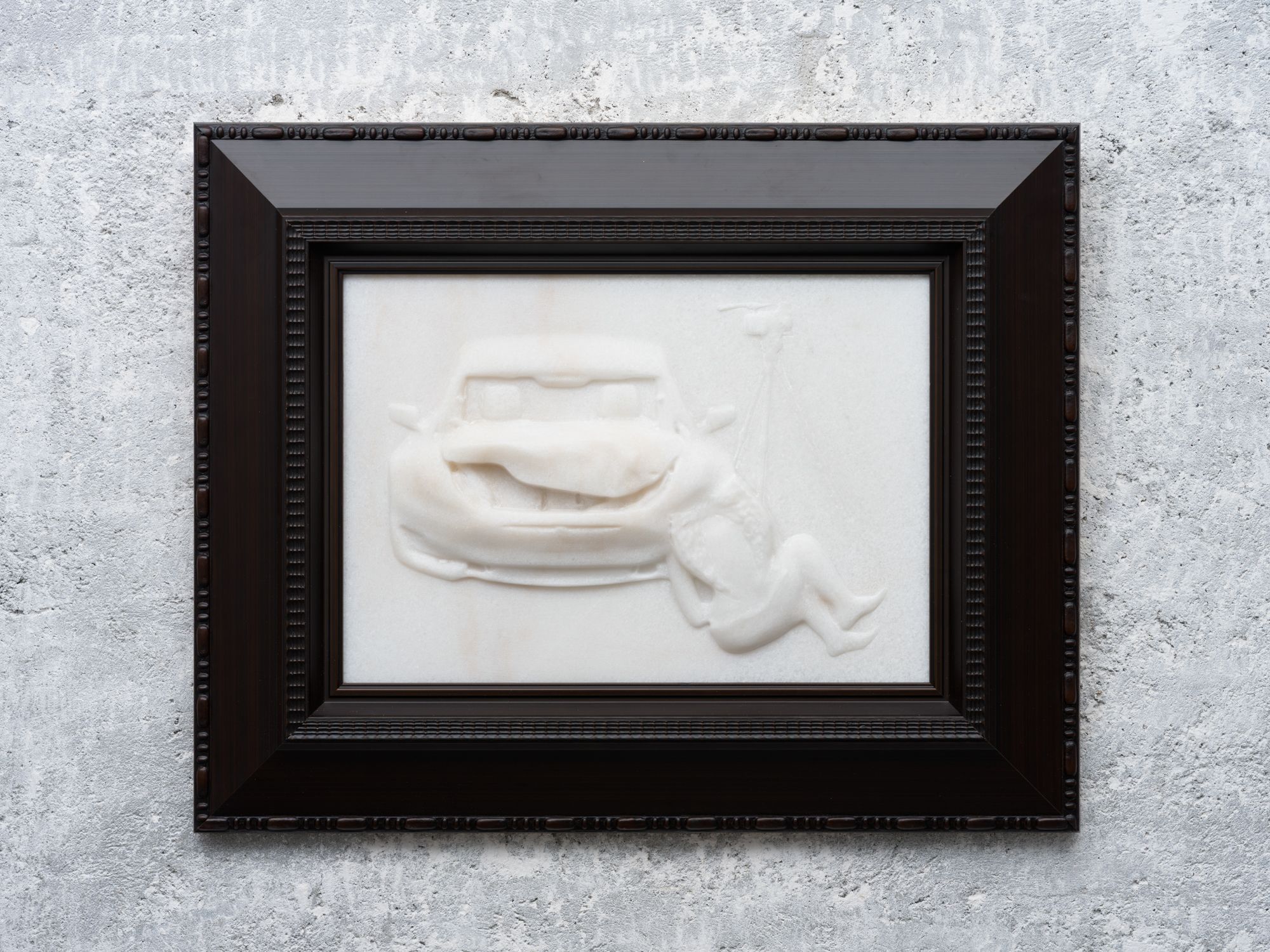
Virtue Village
Crash 1992
2025
White marble, wood frame
56 x 70 x 5 cm
Courtesy the artist and PHD Group, Hong Kong. Photo by Felix SC Wong.
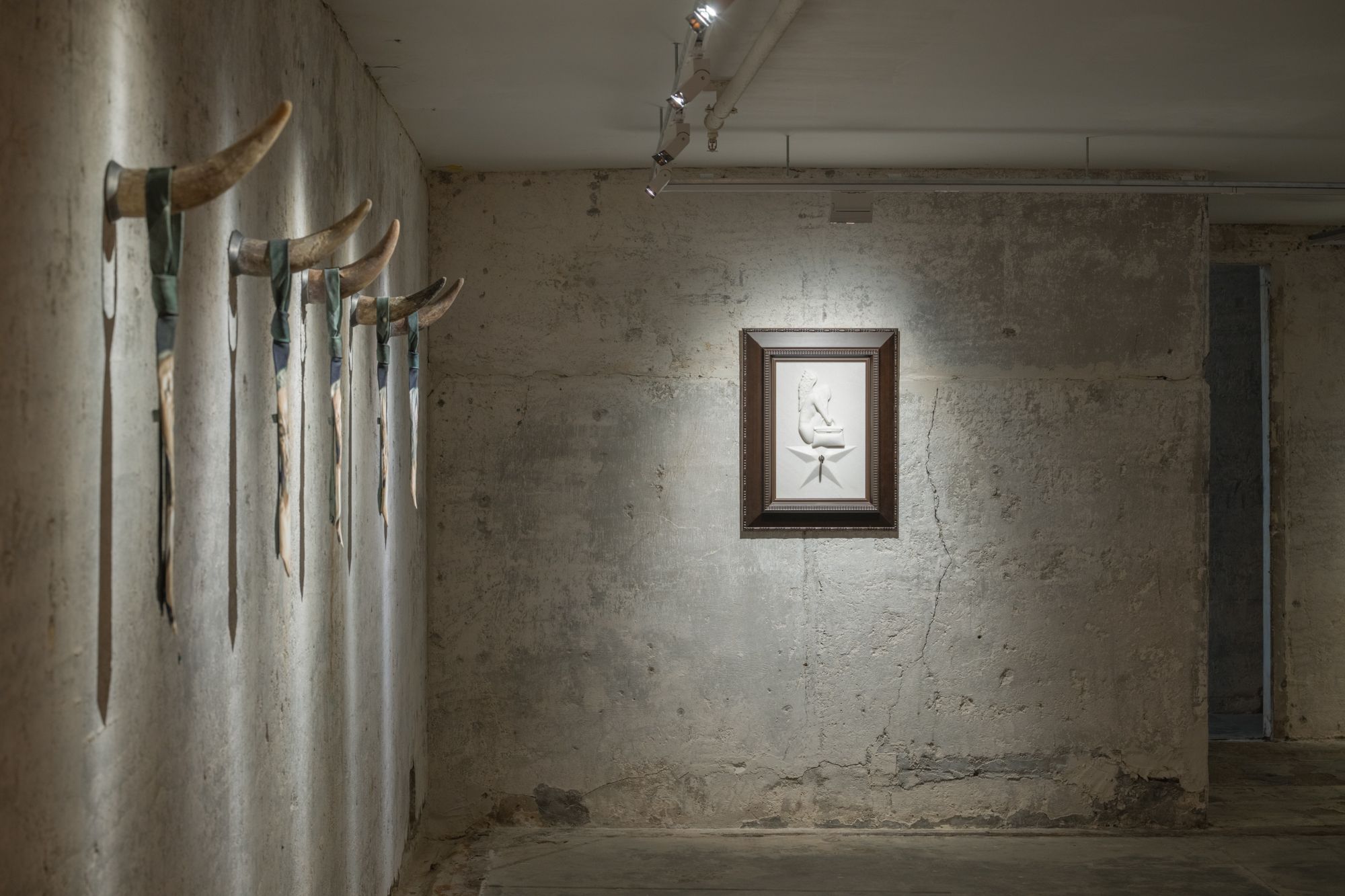
Installation view of Virtue Village's solo exhibition "Vibe Buster" at PHD Group, Hong Kong. Courtesy the artists and PHD Group, Hong Kong. Photo by Felix SC Wong.
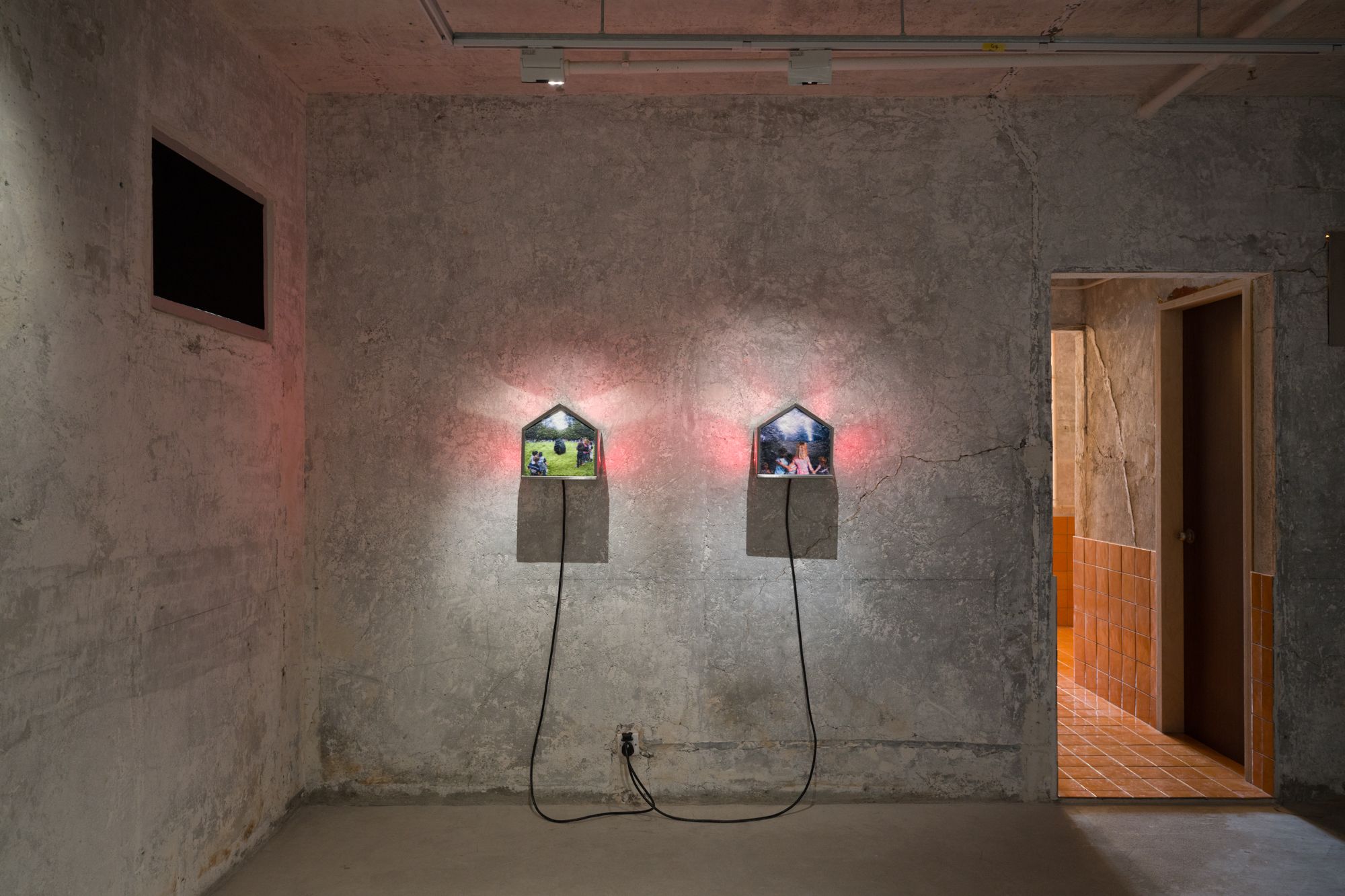
Installation view of Virtue Village's solo exhibition "Vibe Buster" at PHD Group, Hong Kong. Courtesy the artists and PHD Group, Hong Kong. Photo by Felix SC Wong.